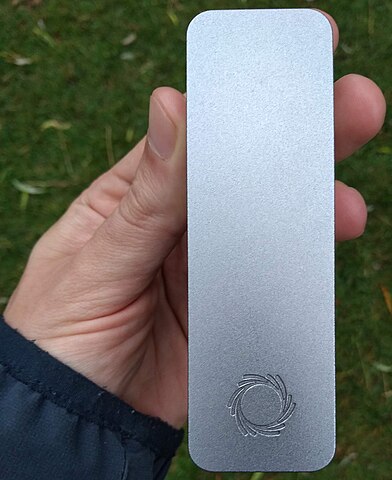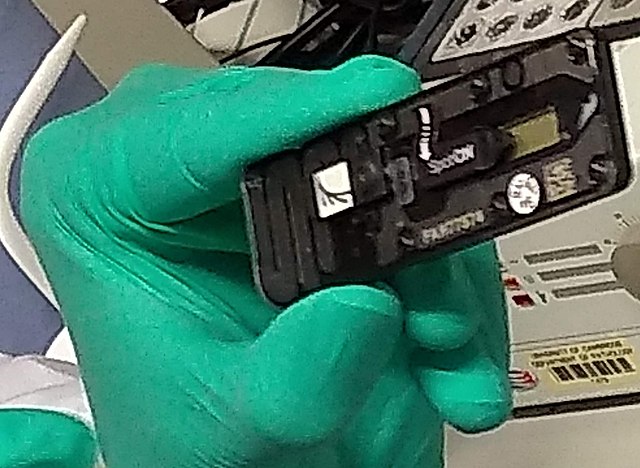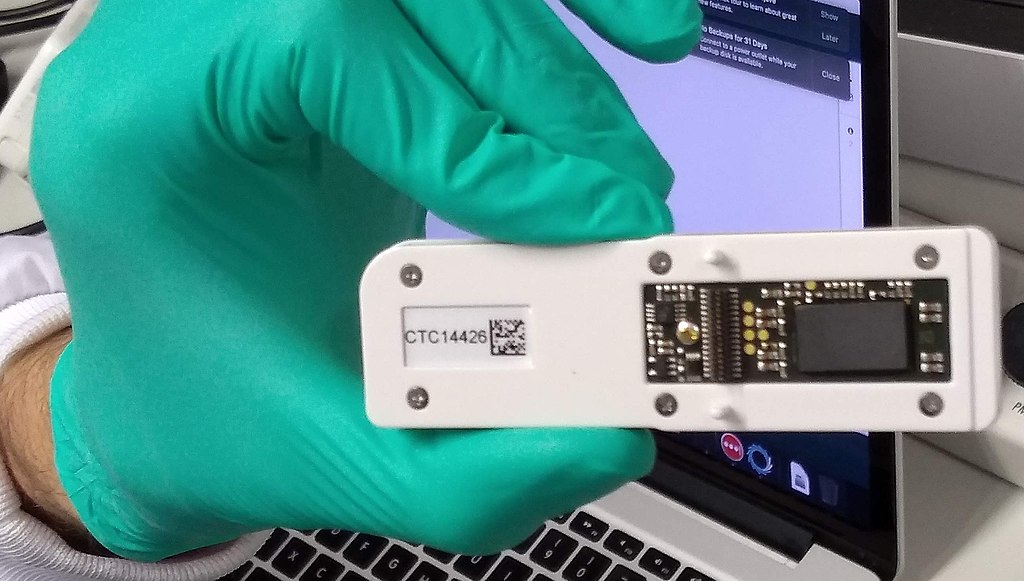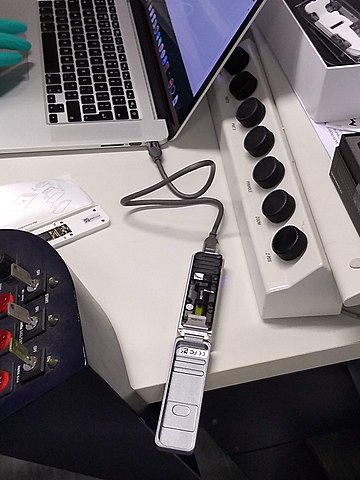We select for the general Equation "Schrodinger equation":giving the full explicit partial differential equation:
- , the linear cartesian coordinate in the x direction
- , which analogous to the sum of kinetic and potential energy in classical mechanics
Equation 1.
Schrödinger equation for a one dimensional particle
. The corresponding time-independent Schrödinger equation for this equation is:
Equation 2.
time-independent Schrödinger equation for a one dimensional particle
. Examples:
- flash memory uses quantum tunneling as the basis for setting and resetting bits
- alpha decay is understood as a quantum tunneling effect in the nucleus
You can't just shred individual sSD files because SSD writes only at large granularities, so hardware/drivers have to copy stuff around all the time to compact it. This means that leftover copies are left around everywhere.
What you can do however is to erase the entire thing with vendor support, which most hardware has support for. On hardware encrypted disks, you can even just erase the keys:
TODO does shredding the
Electron Interference by the Italian National Research Council (1976)
Source. Institutional video about the 1974 single electron experiment by Merli, Missiroli, Pozzi from the University of Bologna.
Then actually show the result live on a television screen, where you see the interference patterns only at higher electron currents, and then on photographic film.
This was elected "the most beautiful experiment" by readers of Physics World in 2002.
Scientific Autobiography by Max Planck translated by Frank Gaynor (1949) by  Ciro Santilli 40 Updated 2025-07-16
Ciro Santilli 40 Updated 2025-07-16
Published as Scientific Autobiography and Other Papers by Max Planck translated by Frank Gaynor (1949) which also contained other papers.
This section refers just to the translation of Scientific autobiography by Max Planck (1948).
One of the sequencers made by Oxford Nanopore Technologies.
The device has had several updates since however, notably of the pore proteins which are present in the critical flow cell consumable.
Official documentation: nanoporetech.com/products/minion (archive)
The following images of the device and its peripherals were taken during the experiment: Section "How to use an Oxford Nanopore MinION to extract DNA from river water and determine which bacteria live in it".
Top view of a closed Oxford Nanopore MinION
. Source. Side view of an Oxford Nanopore MinION
. Source. Top view of an open Oxford Nanopore MinION
. Source. This job announcement from 2022 gives a good idea about their tech stack: web.archive.org/web/20220920114810/https://oxfordionics.bamboohr.com/jobs/view.php?id=32&source=aWQ9MTA%3D. Notably, they use ARTIQ.
OpenSuperQ intro by Quantum Flagship (2021)
Source. Rounds:
www.youtube.com/watch?v=v7iAqcFCTQQ shows their base technology:
- laser beam comes in
- input set via of optical ring resonators that form a squeezed state of light. Does not seem to rely on single photon production and detection experiments?
This is where "fun" stuff is likely to be.
The idea is cool. It really unifies front-and back end.
But Ciro Santilli feels the approach proposed by FeathersJS of being a glue between bigger third-party Front-end web frameworks like React and backend (object-relational mapping) is more promising and flexible.
www.wholecellviz.org/viz.php awesome visualization of simtk, paper: www.ncbi.nlm.nih.gov/pmc/articles/PMC3413483/ A Whole-Cell Computational Model Predicts Phenotype from Genotype - 2013 - Jonathan R. Karr.
Followed up by the E. Coli Whole Cell Model by Covert Lab.
There are unlisted articles, also show them or only show them.








